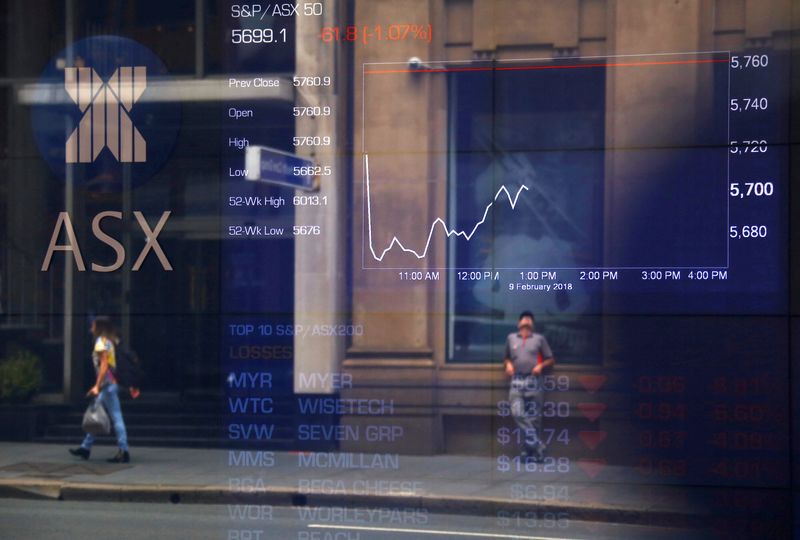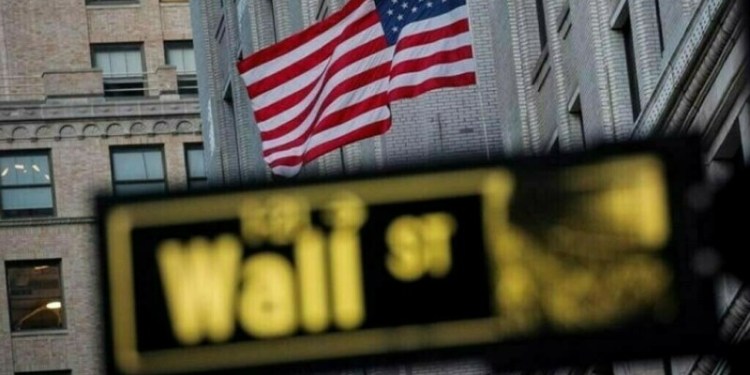
© Reuters. FILE PHOTO: Pedestrians are reflected in a window in front of a board displaying stock prices at the Australian Securities Exchange (ASX) in Sydney, Australia, February 9, 2018. REUTERS/David Gray/File Photo
MIWD0…
-1.26%
Add to/Remove from Watchlist
Add to Watchlist
Add Position
Position added successfully to:
Please name your holdings portfolio
Type:
BUY
SELL
Date:
Amount:
Price
Point Value:
Leverage:
1:1
1:10
1:25
1:50
1:100
1:200
1:400
1:500
1:1000
Commission:
Create New Watchlist
Create
Create a new holdings portfolio
Add
Create
+ Add another position
Close
By Jamie McGeever
(Reuters) – A look at the day ahead in Asian markets from Jamie McGeever.
Two steps forward, one step back.
What Asian markets have gained recently on Fed Chair Jerome Powell’s dovish tilt and China reopening hopes is vulnerable to getting clawed back by fears that U.S. and global interest rates will have to keep on rising more than is currently forecast.
These fears are sparked by strong economic data or hawkish signals from other policymakers, both of which have been in evidence over the past 24 hours. If it is to continue, the year-end rally will not go in a straight line.
Australia’s central bank raised interest rates by a quarter percentage point to a 10-year high on Tuesday as expected, and said more tightening was needed. Investors were looking for a sign it might soon pause, but none was forthcoming.
Australian stocks slumped 2.5% and the MSCI Asia ex-Japan stock index fell 1.2%, its biggest fall in over two weeks. Next up on Wednesday is the Reserve Bank of India, which is expected to slow the pace of rate hikes to 35 basis points from 50.
India’s key economic and policy indicators: https://globalrubbermarkets.com/wp-content/uploads/2024/08/marketmind-when-bad-news-is-bad-news-1.jpg
Of course, investor sentiment can also be soured by good old-fashioned growth fears. This was to blame for Tuesday’s U.S. market selloff after two of Wall Street’s biggest titans sounded 2023 recession warnings.
Some days, investors look at sluggish activity through the ‘bad news is good news’ lens, betting that weak data will prevent central banks from raising rates too much. Other days, bad news is just bad news and Tuesday was one of them – bonds surged and oil slumped to its lowest since the first week of the year.
The MSCI World index posted its biggest decline since early October and has now fallen three days in a row, something also not seen in two months.
This is the tone Asian markets will likely open with on Wednesday, with the RBI rate decision as well as Chinese trade and Australian GDP data likely to set the early direction.
Will bad news be bad news and good news be good news, or bad news be good news and good news be bad news?
Three key developments that could provide more direction to markets on Wednesday:
– India interest rate decision
– Australia GDP (Q3)
– China trade (November)
Source: Investing.com



























